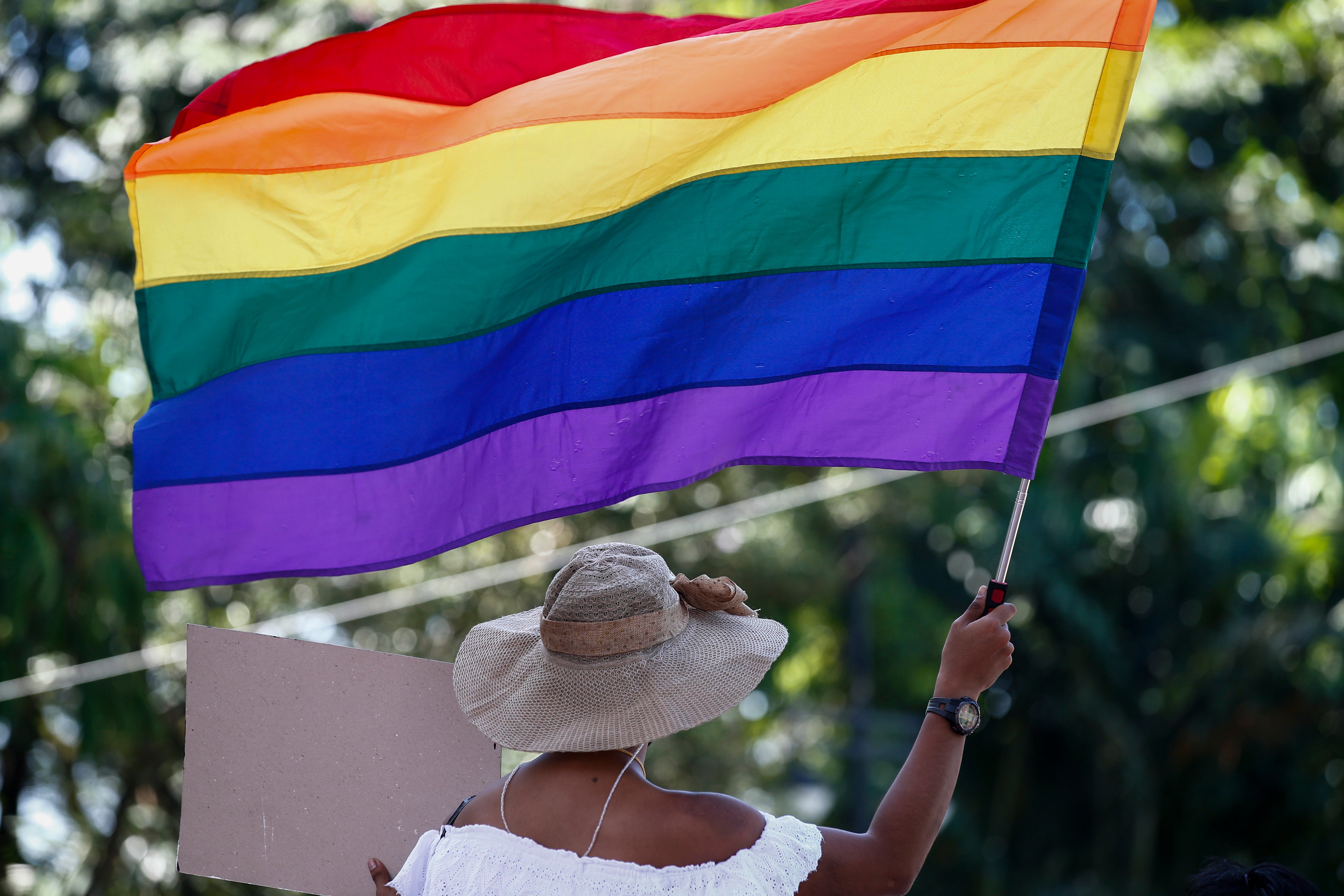Lockdown ‘exacerbated gender dysphoria’ felt by transgender people
Isolation and loneliness appear to be “key aspects” of LGBTQ+ people’s experiences of the pandemic, a review suggests

Your support helps us to tell the story
From reproductive rights to climate change to Big Tech, The Independent is on the ground when the story is developing. Whether it's investigating the financials of Elon Musk's pro-Trump PAC or producing our latest documentary, 'The A Word', which shines a light on the American women fighting for reproductive rights, we know how important it is to parse out the facts from the messaging.
At such a critical moment in US history, we need reporters on the ground. Your donation allows us to keep sending journalists to speak to both sides of the story.
The Independent is trusted by Americans across the entire political spectrum. And unlike many other quality news outlets, we choose not to lock Americans out of our reporting and analysis with paywalls. We believe quality journalism should be available to everyone, paid for by those who can afford it.
Your support makes all the difference.Multiple lockdowns and reduced access to care during the pandemic exacerbated gender dysphoria and mental health challenges experienced by transgender people, research has suggested.
A new report by the National Centre for Social Research (NatCen) identified the impact of the pandemic on the LGBTQ+ communities, and looks out how the loss of safe spaces and the disruption to services affected the mental health, wellbeing and safety of the LGBTQ+ communities in the UK.
NatCen carried out the first large-scale review about the experiences of LGBTQ+ people during the pandemic, analysing 50 studies and data on 1,745 people who took part in surveys by Intercom Trust, LGBT Foundation and Stonewall during April and June 2020.
The review revealed that isolation and loneliness were “key aspects” of LGBTQ+ people’s experiences of the pandemic.
Transgender participants reported they had experienced poor mental health and increased gender dysphoria as a result of cancelled hospital appointments, postponed transition-related care, and reduced mental health support and face-to-face contact with LGBTQ+ friends.
One participant said: "Being in my own head without distraction for long periods (gave) me more time to mull over my dysphoria and fears around my transition."
They were also more regularly misgendered while using phone and video conferencing and when wearing face coverings.
In some studies, transgender and younger LGBTQ+ people reported being more likely to self-harm and attempt or think about suicide during the pandemic.
Working from home was also an issue for many LGBTQ+ people who were not “out” to their families or colleagues, while others had to go through the lockdowns in unsupportive, hostile home environments.
Another participant said: “I have had to re-closet myself, which has had a pretty big impact on my mental health.”
The events of the last 18 months also led others feeling cut off from support networks and friends.
One respondent said: "Not being surrounded by other LGBTQ+ people feels isolating and at times almost invalidating of my own experiences."
Another said: "I’m currently stuck somewhere very remote with no family, no friends, no black community and no gay community. Coming from London this feels very isolating."
Some respondents also shared their concern for how the rainbow flag was being used to represent support for the NHS, with one person saying it made them feel “erased”, while another said it made it difficult to identify true safe spaces and allies.
NatCen also reported that there were “significant” evidence gaps regarding the experiences of Black, Asian, minority ethnic and disabled LGBTQ+ people, and so the organisation will be carrying out focus group research with under-represented groups.
Nathan Hudson, NatCen research director, said: "LGBTQ+ communities’ experiences of the Covid-19 pandemic have been wide-ranging, with negative impacts on mental health, safety and access to services.
"That there are significant evidence gaps for particular LGBTQ+ communities is concerning, and shows the need for further research to help ensure no group is left behind in our recovery from Covid-19."
Join our commenting forum
Join thought-provoking conversations, follow other Independent readers and see their replies
Comments